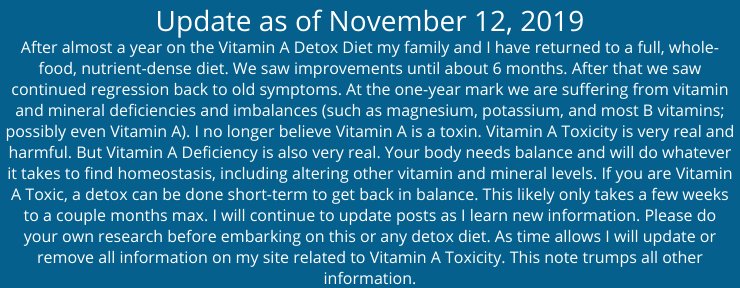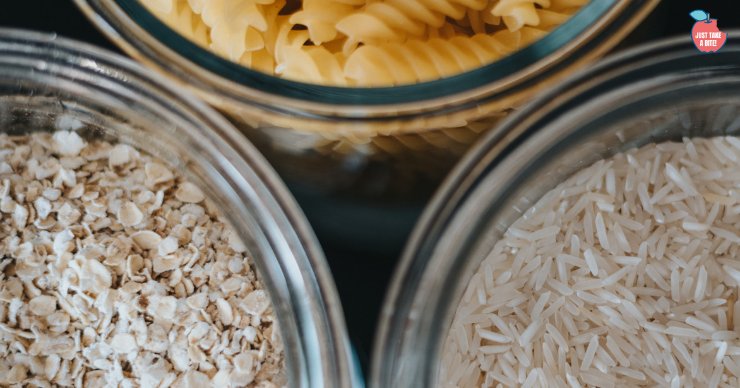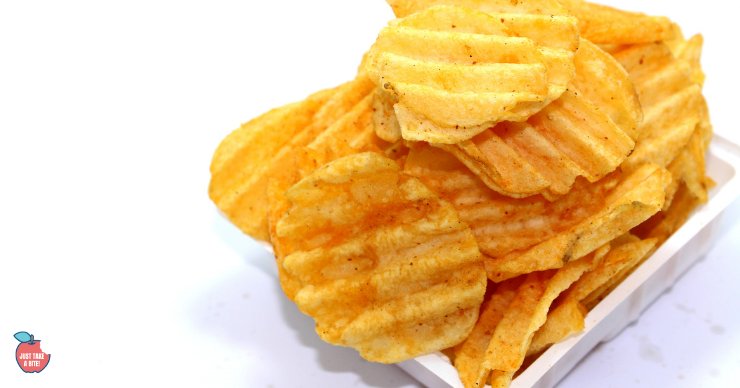

“I feel like my stomach is going to burst.”
I can’t even count the number of times I’ve said that to my husband in our 15 years of marriage (poor guy). Bloating and gas have been my biggest health complaints for a LONG time.
Actually since I was very little. Though back then I didn’t know what it was. I just knew my tummy didn’t feel good. The constant pressure on my bladder that it created, making me have to use the bathroom over and over was what started my anxiety around the age of FIVE!
As you can imagine I’ve tried just about everything over the years to get rid of it. Every diet. Every supplement. Every exercise. You name it, I’ve probably tried it. Everything from prescription anti-spasmodics to anti-depressants (yes, my doctor prescribed that for my GI problems) to prescription Miralax. And of course all of the natural stuff too (after I learned about natural health).
And guess what? None of it worked.
By trial and error I did learn some of my worst offender foods. So I strictly avoided those. Which helped some. But having to avoid a bunch of foods for your whole life just to not be bloated does not seem like a solution.

What is Resistant Starch?
Everyone was talking about resistant starch for a while, claiming it’s health benefits for the gut. In fact, if you do a search for resistant starch that’s all you see – health claims. I haven’t heard about it as much lately. And probably for a good reason. It’s not doing you any favors.
But before I dig into the why, let’s back up and talk about what resistant starch is.
As the name suggests it is starch. The unique part is that it goes through your digestive tract undigested! It is resistant to digestion. So it’s acts sort of like soluble fiber. But it isn’t the same as soluble fiber. Some call it a third type of fiber.
When resistant starch reaches your colon it feeds your bacteria. This in turn produces gas (eek!) and short-chain fatty acids. The most notable short-chain fatty acid is butyrate. You can read a little more detail about the process and the four types of resistant starch here.
What does Resistant Starch Do?
So resistant starch helps your body produce butyrate. If you’ve been around the natural health world long enough that’s probably a term you’ve heard too. In a good way. Some claim it helps fight cancer, inflammation, weight gain, and insulin resistance. Those are all great benefits.
The hardest part for me to handle is the fermentation. Hello, gas and bloating!
Whenever I hear a health claim I also like to look back and compare our modern thoughts with how people used to eat. If resistant starch is mostly found in pre-cooked/leftover food it makes sense that it was not consumed in large quantities. People didn’t used to have refrigerators. You cook and eat. Whatever is left you toss. They also didn’t have processed foods like chips and pasta.
What Foods Contain Resistant Starch?
Are you wondering if you are eating a lot of resistant starch? It’s easy to do! Do you eat leftover rice or potatoes? Are you a fan of the cook once, eat twice method? Do you like some green on your bananas? Then you are in the high resistant starch camp.
The foods highest in resistant starch are:
- oats (especially raw or cooked then cooled)
- cooked and cooled rice
- raw potatoes or cooked and cooled potatoes
- cooked and cooled or canned beans and lentils
- potato starch
- corn
- green bananas and banana flour
- cooked and cooled grains
- nuts (especially cashews) and seeds
As I look back on my eating habits over the past (almost) 40 years I know I’ve been eating a high resistant starch diet! It’s no secret that I am the leftover queen. I think macaroni and cheese tastes better leftover…and cold! Even as a child I would snack on cold leftovers. My salads used to consist of lettuce topped with all of my kids random leftovers from the week. In college I lived on canned beans and granola. As in HAD to have them every day.
Want to know the foods I eventually cut out of my diet by trial and error?
- oats
- potatoes
- bananas
- beans
- corn
- nuts
- seeds
Notice any similarities there? Yep. I had cut out a lot of resistant starch without even knowing it!
How to Avoid Resistant Starch
What exactly is the right way to eat the foods that could be high in resistant starch? It’s simple…but not easy. Unfortunately it requires more effort. Sorry, no cooking a big batch of oatmeal at the start of the week to reheat every morning. But it is worth it to not have all the gas and bloating!
Here are my tips for avoiding resistant starch without completely eliminating some favorite foods:
- Only eat freshly cooked grains and potatoes (this likely eliminates potato chips).
- Avoid granola and overnight oats. Freshly cooked rolled or steel cut oats are ok. Steel cut are better because they are not as processed.
- Avoid leftover or canned beans and lentils. Freshly cooked are fine.
- Only eat fully ripened bananas.
- Avoid prebiotics like inulin.
Baked goods are ok as the resistant starch is greatly reduced in the baking. When the structure of the food is changed (puffed rice, bread, etc.), the resistant starch is broken. I think this also holds true for my homemade rice milk since the blending destroys the starch. I’m not sure about pasta. You’ll have to see how your body responds to it.
This does make you wonder if this is a factor in why some people feel better on a grain-free diet. Or even on some healing diets that eliminate grains, legumes and potatoes! The resistant starch is removed.
Ultimately you have to watch your own resistant starch intake and take note of symptoms to see how much you can handle. But if you are struggling with gas and bloating, resistant starch could be contributing. Working on gut health and improving the health of your microbiome may help you tolerate more resistant starch.
My Resistant Starch Intake
I’m learning more and more about my own digestive system. Along with resistant starch I had cut a lot of fiber out of my diet for many years. I need to find a middle ground. I need the fiber to help with gut motility. BUT I can’t have too much resistant starch. Funny how all of the foods I figured out caused my problems years ago are the ones high in resistant starch!
I’ve been able to add most of them back in to my diet. But I have to do it the right way. I can eat beans without getting gassy…as long as they are freshly cooked. But canned beans cause problems. I’m curious to see how this impacts my nursling’s tummy as well since he often has a lot of gas.
A few months ago I started eating a low histamine diet. That excludes leftover proteins. And now low resistant starch means no leftover grains. Basically I need a diet of freshly cooked whole foods. Mind blowing, huh? But it is hard in our fast-paced world. We tend to reach for convenience. Let’s get back to natural. Let’s get back to fresh. Have your kids help cook (learn how here). Make it a family affair. Freshly cooked, whole foods as much as possible. Let’s step away from convenience and towards better health.

Interesting. I have the same problems when I eat inulin, oats, or leftover rice, but potato chips never bother me. I wonder why.
We all have different tolerances. I’m not 100% sure about the chips. That is my speculation based on the definition of resistant starch. But maybe they don’t have that much. But definitely something to be observant about.
I am 200% sure about the chips! I blamed that high fat content, now I know better.
Thank you so so so much Mary for this article. It is raining articles about the advantages of RS but never the side effect it can have for people with IBS. I honestly thought I was going mad. I have been on the Fodmap diet for ages, but I couldn’t find out why I felt great one day and terrible the next. It makes so much sense now. I blamed the avocado in my sushi, the onions in the fish taco. I thought there must have been sneaky gluten in my rice noodles! GF oats make me sooooo sick, and OMG… GF products with chickpea four and maize, let’s not even go there. Finally, after so many years I feel somewhat normal. I can just get on with my life. Thank you!
I’m glad it was helpful! We are each so unique. Even if something is supposed to be healthy that doesn’t mean it works for everyone. I always seem to be the exception to the rules myself.
Does sourghdough effect you?
It’s been a few years since I’ve tried sourdough. But in the past I’ve done ok with it. I’m hoping to experiment with it soon!
This is me! So what do you eat?
Eat what makes you feel good! It’s different for everyone.
I kind of had the same experience as you- had pretty good digestion for the first week or two of the VAD, no bloating or gas, but then it started getting worse again. Lots of bloating/gas. 🙁 Perfect timing for this article and Dr Smith sharing about it! It is hard mentally to get used to making food for just one meal, and keep on top of having stuff ready for each meal! But I have been doing really well for the past week with just freshly cooked beans and rice and starchy veg. Glad at least meat can be eaten leftover.
Also, what do you think about (white) popcorn? Have you tried it? I’m thinking it might be something like puffed rice, making it a good option? I need to find an acceptable crunchy/salty snack!
I would think it’s ok. I can’t eat popcorn myself as it’s too fibrous/hard. But I can eat white corn chips. Not the healthiest food, but it works for me to keep my metabolism up.
It makes sense when you put it all together, doesn’t it? I hope it keeps going well for you.
Great article Mary! I also discovered RS makes me bloated and anything with cassava flour/starch. What about the nuts and seeds? Have you added those back to your diet? I think I do well with raw nuts and seeds like chia and flax
Thanks, Maria. Right now the only nut/seed I eat is sunflower. I do fine with sunbutter. I have yet to try any nuts as I have a breastfeeding 10 month old with lots of food reactions and other kids with allergies. But I am very curious how I’ll handle them down the road. For a long time I couldn’t eat any nuts or seeds. I’m excited to try them!
Wow, I had already noticed that leftover starch foods didn’t agree with me but wasn’t sure why. Not sure what to do about my gluten free flour mix though, since I use millet mixed with potato starch and sweet rice flour. Hmm.
There are plenty of gluten free grains that work well. Here is a guide for combining. https://justtakeabite.com/2016/02/02/my-favorite-gluten-free-flour-mix/
I use a lot of white rice flour for my “starch.”
Wondering about perogies? Potatoes first cooked, then cooled and then frozen. Then boiled and sautéed in fry pan. Does the RS decrease after completely reheating?
Unfortunately reheating does not do a whole lot to RS. It might decrease it slightly, but not enough to make it safe. I would try using something besides potatoes, like rutabaga or parsnips.
Hello Mary.
Thank you for a very interesting blog about RS. I have big problems with bloating and stomach pain. I have started to investigate RS because I discovered my diet is very high in RS. My question to you is how long time it took before your stomach improved after you cut down RS from your diet.
Best regards Per from Norway
It usually makes an impact pretty quickly, Per. Of course there can be a lot of reasons for bloating and stomach pain – any type of digestive dysfunction or gut dysbiosis. So you’ll have to experiment to see what works for you.
Omg, this actually saved my life. I’ve been wondering for so long why I was bloated all the time. It is unfortunate that more people don’t know about this. I’ve literally been trying to find the answer for years 🙁
Thank you for posting!!!!!
I’m glad it has helped you, Kemi!
Due to an ever increasing fructose intolerance, I’ve been told to eat greener bananas. Wow, the bloating has been worse, and I was wondering why. Now I know. Many thanks!
My gut health greatly improved when I started eating cooked and cooled rice and potatoes, steel cut oats, but not beans.
Beans still give me gas and bloating.
I guess everyone is unique in their responses to foods or medicine or anything else.
I also started taking butyric acid capsules and that along with some types of resistant starch has also helped me greatly to reduce gas, bloating, gas odor, as well as much pain in my abdomen.
My husband, too, claims he has less gas and the gas has very little odor.
Yes, we are all so unique! Glad you found what works for you.
Thanks for sharing your experience. What about fermented beans like natto, tempeh and miso?
I don’t know about their resistant starch content. But in general they are considered healthy.
This is something i have noticed as well. When i was in college, used to get bloated everyday after lunch or dinner but when i came home to visit my parents, the bloating reduced. I realized that i was eating a lot of leftover rice and letil everyday since i didn’t have time to cook everyday while at home, the meals were freshly cooked.
Glad you were able to pinpoint your culprits!
I seem to do very good on resistant starch, however I always cook the food fresh and cool in freezer for about 30-40 minutes and eat immediately after. I do not eat any left overs beyond a couple hours after preparation. Is everything you are eating organically grown? I am wondering if glycophosphate damaging the gut lining could be part of the issue, also were you breast fed as a child? since you said you’ve had problems since childhood and certain beneficial bifido bacteria can fail to colonise without human milk oligosachharides i am curious if that could be part of the issue.
We grow most of our own food. Yes, I was breastfed. I know my root causes from childhood.
This sounds like you are suffering from SIBO, which is caused by wrong bacteria in the small intestine. That’s why you can’t tolerate the RS which is normally very healthy, but not for people with certain gut issues.
Here I found an article about how to fix SIBO, I hope it can be of some help to you!
https://digestivehealthinstitute.org/2012/08/17/sibo-diet-and-digestive-health/
Much Love
Mara
Yes! I was looking through to see if anyone was going to mention that this is textbook SIBO. A breath test, followed by antimicrobials or an elemental diet if positive, would be well worth it. Then my understanding is that it takes a lot of time/patience and tolerance of some symptoms in the colon to rebuild the tolerance to RS in the colon, but it can’t be tolerated at all if the (good) bacteria is in the wrong location (small intestine). Siboinfo.com is the largest culmination of information by a leading expert on it now. The diet recommended by Dr. Pimental, a gastro at Cedars-Sinai, is the least restrictive and works for me, but experimenting with fresher cooked grains is a good idea for the rebuilding of butyrate.
This is a revelation! Thank you! but for a patient with chronic fatigue, carting for herself and dependent on pre-cooked foods, could you please list the foods that DO NOT contain resistant starch. so that I can make them when I’ve got energy? for example, if I baked quinoa and froze it, would that be free of RS? what about those packets of eg “cauliflower rice”?
I’m glad you enjoyed the information, Sue. I do not have a list of low RS foods. You can do a google search to find some.
I’m allergic to grains, legumes, nuts, seeds, nightshades, coconut, eggs, shellfish and yeast.
I might read something like this and think, “Oh! It’s the resistant starch!” if I never knew I was an allergic girl.
It’s highly possible there’s a food allergy or sensitivity issue if one is having a problem with seeds and such.
I’m perfectly fine with raw green plantain, which has quite a lot of resistant starch.
Take care everyone & eat as balanced as you can. I’m very impressed with your notice updating your pages. I was a raw foodist, long ago, and it was very helpful for many health conditions but proved to be unsustainable. I also learned I have a genetic factor which makes it more difficult for my body to convert beta-carotene to Vitamin A & feel sad to think the utter lack of preformed Vitamin A in my diet may have contributed to my son’s Optic Nerve Hypoplasia.
I need to boost my wife’s usable carbohydrate intake. She has gastroparesis. So, I want fast, easy to digest, easy to pass carbs – so low resistant starch. Add raw white rice flower to her drinks? Will this do the trick? Low resistant starch and high carbs? Thanks.
I’m sorry to hear your wife is struggling, Mike. Unfortunately I can not give individual advice to someone that is not a client. I would need a lot more information to advise on diet particulars.
Thanks for the reply, Mary.
Hi Mike,
the underlying cause of gastroparesis could be a thiamine deficiency (Vitamin B1).
The stomach function is controlled by the autonomous nervous system, which relies on sufficient B1 to work properly.
Elliott Overton is very knowledgeable about this problem. He also has a youtube channel called EONutrition. Here is a link to a forum where he describes the issues caused by a lack of thiamine:
https://cassiopaea.org/forum/threads/thiamine-vitamin-b1-a-common-deficiency-in-disorders-of-energy-metabolism-cardiovascular-and-nervous-system-dysfunction.46452/page-6
I wish you wife all the best and a speedy recovery!
Thanks, Mara! We will DEFINITELY check this out. Interestingly, B1 (Thiamine) is contained in a Vagus Nerve product we are considering. Thanks so much for the well wishes. Please stay save and take care of yourself.
Please do NOT try raw white rice as food for ANYONE. Very dangerous for multiple reasons. Just do NOT do that, please. One reason: Bacillus cereus (B. cereus) – is a harmful bacteria present in almost all rice everywhere and it can cause severe food poisoning. Another reason: raw rice will SWELL when in contact with liquid for long enough time – you do not want that happening inside the body. Many other reasons – but those should be enough to stop you from feeding raw rice to your wife. Please don’t do it!
Thanks, SB! Good to know. Message received. But same is true for white rice FLOUR as well? Thanks!
Mike , Consumers Reports magazine wrote about the danger of raw wheat flour… serious infections. I’m hoping that the cookie dough products (like ice cream where it contains “raw cookie dough” are prepared in a way with safe wheat flour. Our ancestors found ways, passed on as traditions, and now all of us nuts are eating foods in ways that we never should. Go check out https://nutritionrestored.com/ and the online community there. Ive learned so much to undo all the kooky stuff I learned online previously. It’s a place where people are actually recovering their health.
Very helpful article, thanks, Mary!
is there a certain cooling temperature and time frame when you change a food to have more resistant starches? Also would putting uncooked foods in the frig have any effect on this like flour, rice, potatoes etc. or should you have them unrefrigerated up till you cook with them? Thanks and great write-up
The Cambridge article you linked:
“We report that intake of dietary RS can modulate circulating levels of TMAO, a metabolite that is associated with increased future risk of major cardiovascular events.”
Modulate means to REGULATE. AKA means it helps PREVENT CVD.
As for the forum posts of the madman who ASSumes:
YOU ARE TALKING ABOUT A TUMOR THAT ALREADY LIVES IN THE GUT. Just like
any healthy cell, tumor cells feed off of the same nutrients. They just tend to
swallow EXTRA and multiply endlessly. If you increase NUTRIENTS
in the area, of course cellular activity will INCREASE. Calling vitamin A poison is like
saying drinking water is bad because too much will cause cellular death. Um … DUH?
Please don’t misinform people with this fear mongering if you don’t even understand the data you yourself are presenting. Unfortunately YES, amylose, the main acting component of resistant starches does indeed cause gas in SOME polysaccharides. Not all variations of amylose are the same either. What you feed the bacteria in your gut plays a role in how they act. Partially Hydrolyzed Guar Gum(sold under the brand “Sun Fiber”) for example is an Excellent probiotic that does NOT produce gas/bloating. Amounts matter too; for example Gum Arabic can help with IBS and other issues, but take too much and you get indigestion and gas. Please, if you are having issues with your diet and how it effects you TALK TO A DOCTOR OR NUTRITIONIST that’s what they are there for.
Thank you for your thoughtful response. I have recently updated the post. Resistant starch tolerance is very individual and relates to gut health. Hopefully the post will help people at least learn what RS is and why those foods may be causing digestive upset.
A nutritionist coach suggested potato starch in water to lower bad cholesterol. Three days and I am over it. Nothing but bloating, gas and cramps. I will go back to psyllium when needed. However, my diet pretty much consists of protein,fruits, vegi’s and fats. Keeping it real keeps my tummy balanced.
We all tolerate different things! Way to go for listening to your body.
Finally, an explaination for problem i have been facing my whole life . Even doctors weren’t clear why I’m bloating so much. Very well written article.
Great Article. I’m glad I found it after wading through Many web sites promoting Resistant Starch.